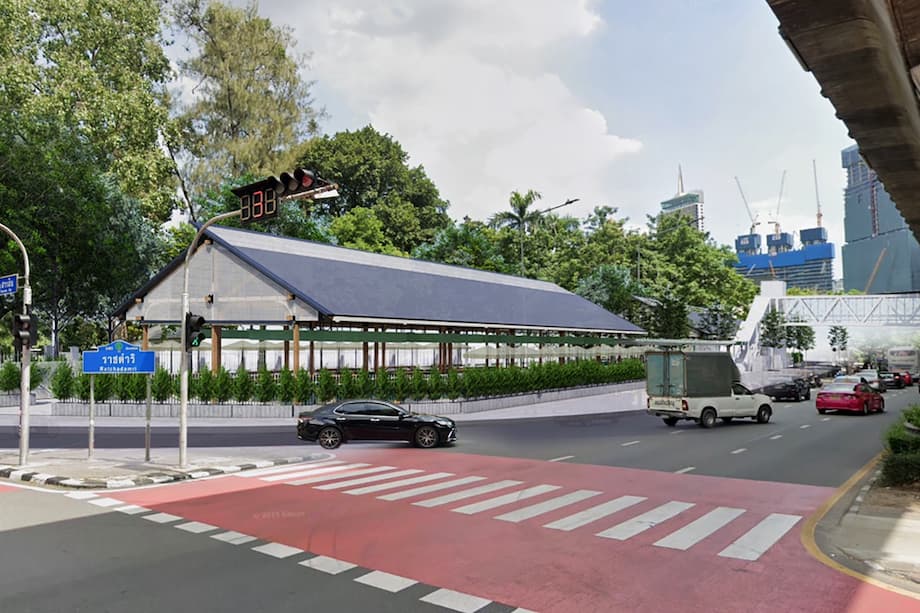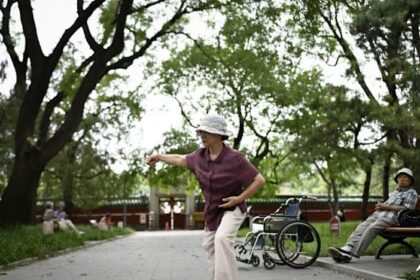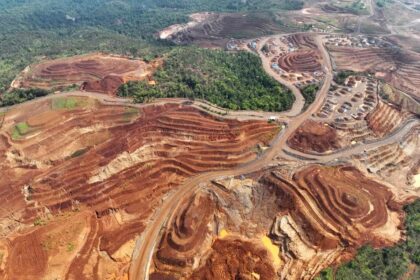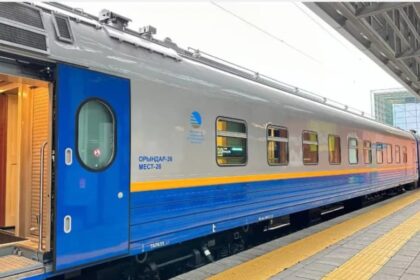Bangkok’s Street Food Revolution: A New Era Near Lumphini Park
Bangkok’s legendary street food scene is about to enter a new chapter. In early 2026, the city will unveil a modern Hawker Centre beside Lumphini Park on Ratchadamri Road, a move that promises to reshape how locals and tourists experience Thai street food. This ambitious project, led by the Bangkok Metropolitan Administration (BMA), aims to blend the city’s vibrant culinary heritage with improved organization, hygiene, and sustainability—while supporting the livelihoods of street vendors and preserving the unique flavors that have made Bangkok a global food destination.
- Bangkok’s Street Food Revolution: A New Era Near Lumphini Park
- Why Build a Hawker Centre? The Vision Behind the Project
- Location, Design, and Green Initiatives
- Supporting Vendors: From Sidewalks to Stalls
- What Will the Hawker Centre Offer?
- Impact on the Community and Tourism
- Voices from the Ground: Vendors and Diners React
- Urban Planning and Accessibility: More Than Just Food
- What’s Next? Looking Ahead to 2026
- In Summary
Why Build a Hawker Centre? The Vision Behind the Project
Street food is the heartbeat of Bangkok. From dawn until midnight, the city’s sidewalks teem with vendors serving everything from spicy noodles and grilled meats to tropical fruits and sweet treats. Yet, this beloved tradition has faced mounting challenges: overcrowded pavements, inconsistent hygiene standards, and pressure from urban development. The new Hawker Centre is the city’s answer to these issues, inspired by the successful model of Singapore’s hawker centres.
According to BMA spokesman Aekvarunyoo Amrapala, the centre will “elevate the quality of Bangkok’s street food and make the city more organised.” The project is designed not only to improve food safety and cleanliness but also to create new opportunities for vendors, especially those displaced by recent sidewalk clean-up operations.
Learning from Singapore: A Model for Urban Street Food
Singapore’s hawker centres are renowned for their clean, affordable, and diverse food offerings in regulated environments. By adopting a similar approach, Bangkok hopes to preserve its street food culture while addressing public health and urban management concerns. The Hawker Centre near Lumphini Park will be the city’s most visible experiment in this direction, setting a precedent for future projects.
Location, Design, and Green Initiatives
The Hawker Centre is being constructed on Ratchadamri Road, adjacent to the iconic Lumphini Park in the Pathum Wan district. This central location is strategic: it serves early-morning exercisers, office workers, tourists, and late-night diners alike. The site is easily accessible by public transport and within walking distance of major attractions and business districts.
Construction began on June 27, 2025, and is expected to finish in early 2026. The design prioritizes sustainability and comfort. The main building will feature natural ventilation, minimizing the need for air conditioning, and a muted roof color to reduce light reflection that could disturb the nearby King Chulalongkorn Memorial Hospital. Large trees from the construction site have been temporarily relocated within Lumphini Park and will be replanted at the centre upon completion, reflecting the BMA’s commitment to environmental preservation.
Modern Facilities, Traditional Flavors
The centre will operate in two shifts: a morning group from 5am to 4pm and a night group from 4pm to midnight, with space for 88 vendors in each period. Each vendor will have a 2×2 metre stall, ensuring enough room for food preparation and customer interaction. The open-air design will help maintain the lively, communal atmosphere that defines Bangkok’s street food culture, while also supporting better hygiene and waste management.
Supporting Vendors: From Sidewalks to Stalls
One of the project’s core goals is to support street vendors, particularly those affected by recent footpath clean-up operations along Sarasin Road and other nearby areas. These vendors will be given priority when booking stalls at the new centre, providing them with a stable, regulated environment to continue their businesses.
For many vendors, the transition from informal sidewalk setups to a structured hawker centre represents both a challenge and an opportunity. While some may miss the freedom and spontaneity of traditional street vending, the new centre offers protection from weather, improved facilities, and a steady flow of customers drawn by the central location and diverse offerings.
Bangkok Metropolitan Administration spokesman Aekvarunyoo Amrapala explained, “The project also aims to create opportunities for local people.”
By formalizing street food operations, the BMA hopes to ease the burden on low-income vendors and help them thrive in a changing urban landscape.
What Will the Hawker Centre Offer?
The Hawker Centre promises a wide array of affordable food, drinks, and fresh produce, maintaining the distinctive character of Bangkok’s street food. Vendors will be encouraged to keep prices accessible, with meals expected to remain within the budget-friendly range that locals and tourists have come to expect. Early reports suggest that the centre will feature:
- Classic Thai dishes like pad thai, som tam (papaya salad), and khao man gai (chicken rice)
- Grilled meats, seafood, and vegetarian options
- Fresh fruit, desserts, and traditional snacks
- Drinks ranging from Thai iced tea to fresh coconut water
Tourists and locals alike can look forward to a curated selection of vendors, each bringing their own specialties and family recipes. The centre’s operating hours (5am to midnight) ensure that everyone—from early risers to night owls—can enjoy a meal at almost any time of day.
Preserving Culinary Heritage While Raising Standards
Bangkok’s street food is not just about eating; it’s a cultural experience. The Hawker Centre aims to preserve this heritage by supporting small businesses and encouraging the continuation of traditional recipes. At the same time, the centre will enforce higher standards for cleanliness, food safety, and waste disposal, addressing long-standing concerns about hygiene in informal street food settings.
According to the BMA, the centre’s design and operations will be guided by best practices in food safety and environmental management. Vendors will receive training and support to help them adapt to the new requirements, ensuring that the transition benefits both businesses and customers.
Impact on the Community and Tourism
The new Hawker Centre is expected to have a significant impact on both the local community and Bangkok’s tourism industry. For residents, it offers a safer, cleaner, and more organized place to enjoy their favorite foods. For tourists, it provides a convenient, central hub to sample authentic Thai cuisine without navigating the sometimes chaotic world of sidewalk vendors.
Bangkok’s street food has long been a draw for international visitors, who flock to the city in search of culinary adventures. The Hawker Centre’s proximity to Lumphini Park—a popular destination for jogging, picnics, and cultural events—makes it an ideal stop for travelers exploring the city’s green spaces and urban attractions.
Balancing Modernization and Tradition
While the move towards organized hawker centres is seen as a positive step by many, it also raises questions about the future of Bangkok’s street food culture. Some worry that increased regulation and standardization could erode the spontaneity and diversity that make the city’s food scene so special. Others point to Singapore’s experience, where hawker centres have successfully preserved culinary traditions while improving public health and urban order.
The BMA has emphasized its commitment to maintaining the unique character of Bangkok’s street food, even as it introduces new standards and facilities. The success of the Hawker Centre will depend on ongoing support from the government, vendors, and the community at large.
Voices from the Ground: Vendors and Diners React
Current food stalls near Lumphini Park are known for their affordability and authentic flavors, with meals for two often costing less than 100 baht. Reviews from locals and tourists highlight the friendliness of vendors and the variety of dishes available, though some note that the environment can be basic and the number of stalls limited at certain times.
A tourist review on TripAdvisor notes, “The food is known for being tasty and extremely affordable, with meals for two people costing around 60 baht. The buffet is especially popular for its low price, offering many spicy dishes for as little as 40 baht.”
Online discussions reflect excitement about the new centre, with many hoping it will make ordering easier for non-Thai speakers and provide a more comfortable dining environment. Some community members, especially those who frequent the area, are eager to see how the new centre will balance affordability, authenticity, and improved facilities.
Urban Planning and Accessibility: More Than Just Food
The Hawker Centre is part of a broader effort by the BMA to improve urban infrastructure and public spaces. The city is upgrading sidewalks along main roads and BTS (Skytrain) access routes, aiming to create a one-kilometre walkable radius around each station. By 2026, Bangkok plans to have upgraded 1,000 kilometres of sidewalks, making the city more accessible for pedestrians and supporting the integration of food, transport, and recreation.
These improvements are expected to benefit not only street vendors and diners but also the wider community, contributing to a more livable and attractive city. The project reflects a growing recognition of the importance of public spaces and the need to balance economic development with cultural preservation and environmental sustainability.
What’s Next? Looking Ahead to 2026
As construction continues, anticipation is building for the Hawker Centre’s grand opening in early 2026. The BMA has pledged to provide more details about vendor selection, food offerings, and operational guidelines as the project progresses. Community engagement will be key to ensuring that the centre meets the needs of both vendors and customers, and that it remains a vibrant part of Bangkok’s culinary landscape.
For now, the Hawker Centre stands as a symbol of Bangkok’s evolving identity—a city that cherishes its traditions while embracing innovation and change. Whether you’re a lifelong resident or a first-time visitor, the new centre promises to offer a taste of Bangkok’s past, present, and future—all in one delicious, bustling hub.
In Summary
- Bangkok will open a new Hawker Centre beside Lumphini Park in early 2026, aiming to modernize and organize the city’s street food scene.
- The centre will operate from 5am to midnight, with 88 vendors per shift, offering affordable and diverse Thai cuisine.
- Vendors displaced by recent sidewalk clean-up operations will be prioritized for stalls, supporting their livelihoods and preserving culinary traditions.
- The project draws inspiration from Singapore’s hawker centres, focusing on hygiene, safety, and environmental sustainability.
- The Hawker Centre is part of a broader urban renewal effort, including sidewalk upgrades and improved public spaces, to make Bangkok more accessible and livable.
- Locals and tourists alike can look forward to a new, central hub for authentic Thai street food, blending tradition with modern standards.












